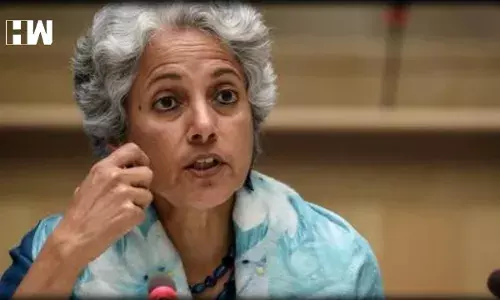New Delhi: Chief scientist of World Health Organization Dr Soumya Swaminathan on Friday said hospitalisation due to Omicron is rising across the world, mostly in unvaccinated people. Sounding an alarm for countries which are beginning to feel the heat of Omicron, Dr Swaminathan said, “Though Omicron may cause less severe disease, a small % of a huge number is still very large and can overwhelm health systems.” Congratulating health workers, the chief scientist said vaccination protects against hospitalisation and death — be it caused by Omicron, Delta or any other variant of covid.
The Omicron outbreak, which has triggered fresh concerns globally and raised an alarm, will see the burden shift from hospitals to the out-patients department, from ICUs to home-based care, Dr Swaminathan said.
“People are worried. You may not have symptoms but you would want to talk to a doctor, you’d want to see a healthcare worker, and you’d want advice. That’s what we will have to prepare for,” she said.
The Chief Scientist of the global health body called for an urgent ramping up of teleconsultation services to tackle the Omicron-fuelled surge. “Maybe, this is the time to really scale up the telehealth and telemedicine services to make sure we have enough doctors and nurses in out-patients’ clinics; make sure we can treat people at home as much as possible or at primary care isolation centres where they get basic care if they don’t need advance care,” she said.
rden of this outbreak will be more on out-patients and home-based services rather than ICU and hospital beds for severely ill.”
However, the real fear is people becoming complacent and thinking of the variant to be like common cold and that there is nothing to worry about, she cautioned.
“I don’t think we can conclude that at this stage,” Dr Swaminathan said as she underlined the dangers of complacency that stems from the general belief that Omicron infections are mild.
But, the low risk of severe infections and deaths doesn’t mean that the doctors, hospitals, out-patients departments, health care workers, and the infrastructure won’t be overwhelmed, she said, adding that governments must prepare for this eventuality.
India has so far reported over 1,200 cases of the Omicron variant with Delhi and Mumbai leading the surge.
“We have seen a lot of data coming in; mainly from South Africa and the UK. What South Africans have shown is that the surge, the number of cases they experienced with the Omicron compared to Delta and other surges was four times more. It is that much more transmissible,” she said.
“The actual number was 40,000 in the previous outbreaks during the peak and it was around 1,40,000 during Omicron. But at the same time, the risk of hospitalisation was one-fourth. So, it evens out – four times more transmissible, one-fourth the risk of hospitalisation. You end up with the same number of people in the hospitals,” she added.
But not everything is bleak, according to the senior health expert.
As an independent media platform, we do not take advertisements from governments and corporate houses. It is you, our readers, who have supported us on our journey to do honest and unbiased journalism. Please contribute, so that we can continue to do the same in future.

